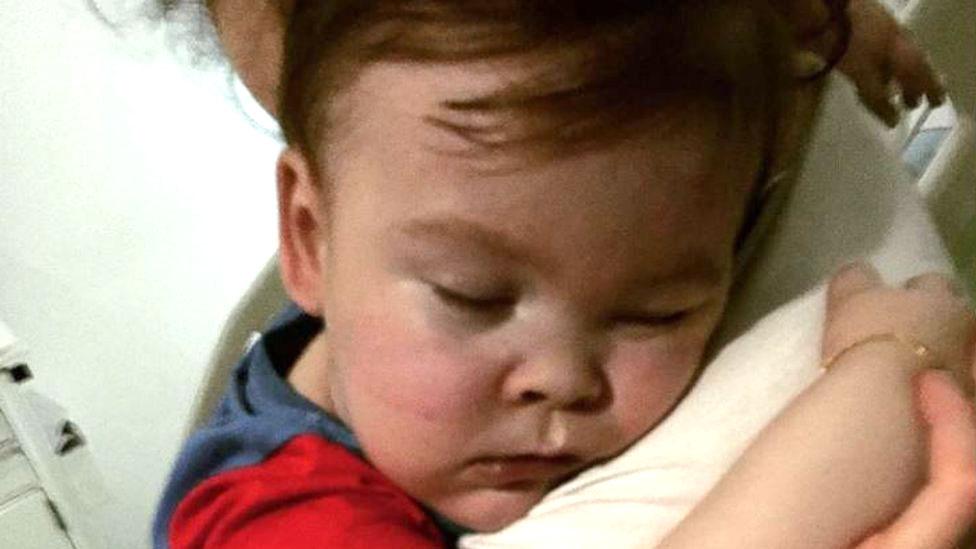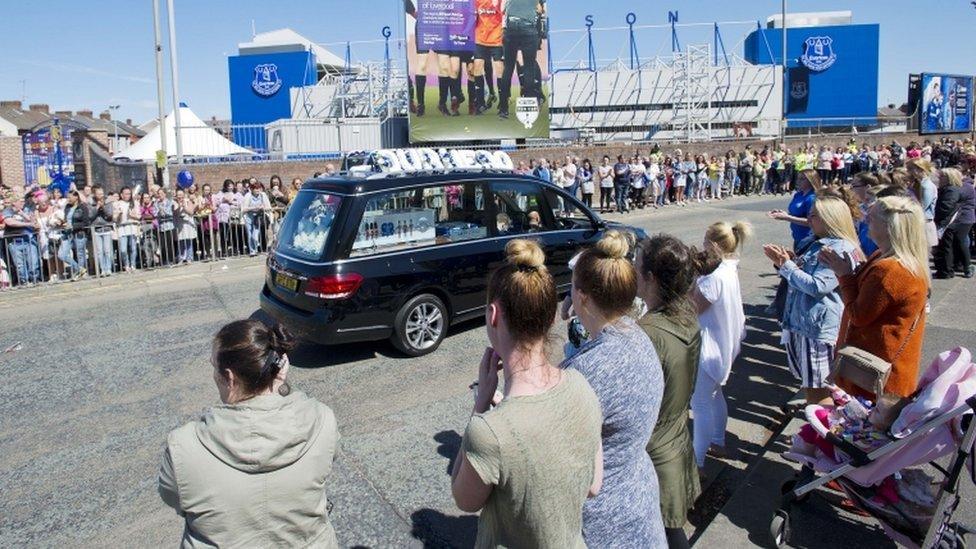Autistic Iraq girl left in Liverpool hospital: Council criticised
- Published

The girl is believed to be suffering from post-traumatic stress disorder
A council's "atrocious" treatment of a traumatised autistic girl who hurt nine nurses and a security guard has been criticised by a judge.
London's High Court heard the girl who lived in a "war zone" has been left in Liverpool's Alder Hey Children's Hospital for months as the city council failed to find her accommodation.
The court heard her breakdown was "triggered" by seeing a shrine to Alfie Evans who died at the hospital.
The girl, 15, lived in Iraq for years.
'Exacerbated by social services'
The girl identified in court as R for legal reasons is thought to be suffering from post-traumatic stress disorder.
The court heard the incident happened after she saw the memorial to 23-month-old Alfie, whose parents lost a high profile legal fight to stop his treatment being withdraw.
The ward had to be cleared and six members of staff took sick leave and another resigned after the incident, the court heard.
Mr Justice Hayden said the council's failure to find a placement was not only harming R but "preventing sick children being treated".
Michael Mylonas QC, for Alder Hey Children's NHS Foundation Trust told the judge her condition "has been exacerbated precisely because of her treatment by social services".
'Fixated' on dying
He said R became "fixated" she would die at Alder Hey after seeing Alfie's shrine in the hospital grounds.
Michael Mylonas QC, for Alder Hey Children's NHS Foundation Trust, agreed to continue caring for R in the meantime.
The council's lawyer told the judge suitable accommodation will not be ready for the girl for two weeks.
Approving an interim care plan, the judge, who also heard the High Court case of Alfie Evans, concluded R "has been subjected to really profound physical and emotional harm" and "the state from whom she was entitled to expect care and support has caused her significant harm".
He said "much of her extreme behaviour may be in consequence of whatever she witnessed in Iraq".
Mr Justice Hayden added the case was "atrocious" and "must never happen again".
- Published24 April 2018

- Published14 May 2018
